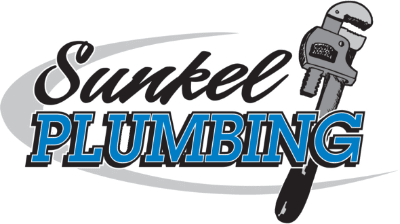Today’s modern society is bombarded with cheap products that come at a cost to us all. Plumbing is no exception. There are many things you believe to be true about plumbing, but the truth may surprise you.
1.) You can prevent clogs by putting cooking grease down your sink drain instead of using the trash disposal.
False. Unless you enjoy fishing out your clogged drain every few months, do not pour cooking oil or grease down your sink or drains. It may seem harmless to just dump the stuff right in the kitchen sink, but it will collect over time and form a solid block of gunk that will cost you money to have removed. Even worse, it can cause major problems in your pipes that will lead to more expensive issues later.
2.) You should use bleach to clean out your toilet bowl.
Technically true, but only because bleach contains compounds that kill bacteria and mold. However, chlorine is known for eroding rubber parts of your toilet, including the seal around your bowl. Not to mention, it’s expensive and too much will leave behind harmful chemicals that are bad for your health.
3.) You shouldn’t use copper tubing for hot water because over time it will corrode and your plumbing won’t work anymore.
False. This is based on a myth that has been going around since the 1920s. Most likely, it came from other plumbing materials being more commonplace at the time and having a marketing campaign to make copper seem inferior. In reality, modern plumbing systems are required by law to use only up-to-code components and if installed correctly there won’t be any water corrosion.
4.) You can remove hard water stains by applying white vinegar to your shower door and letting it sit overnight.
False. While white vinegar is a great cleaner, it’s not strong enough to cut through the build-up of minerals on your shower door. Some people have also tried using cleaners to no avail. The best solution is to use a hard water stain remover, which you can pick up at the store for under $5.
5.) You should pour grease down your drain so it doesn’t clog your sink.
False. Grease should never be poured down a sink or drain. It will not dissolve, but instead, stick to the side of your pipes. When it cools, it will create a clog that can be costly to remove. The best method is to strain out the grease with an old coffee filter and toss it in the trash.
6.) You should flush cotton swabs down your toilet because they will dissolve.
False. Don’t be fooled into thinking that because you can flush other products down your toilet, cotton swabs are no big deal. They may seem to disintegrate, but it’s only the tip. The stringy part will not break down and could collect in your septic system or damage your pipes.
7.) You should use hot water to clean out your clogged drain because it will dissolve the gunk easier than cold water.
False. This is only true if you don’t let the clog sit for too long, so it doesn’t harden and become more of a problem. The proper way to clean out a clog is to use liquid or gel drain cleaners that are available at the store for under $5. If they don’t do the trick, you may need to snake your drain, which will cost roughly $50 and is only available from a professional plumber.
8.) You should pour chemical drain cleaner down your drain and follow up with a lot of hot water.
False. This method only temporarily opens the clog, allowing you to flush out whatever is causing the obstruction. It will eventually get clogged again and require professional help or replacement parts that can cost hundreds of dollars.
9.) If your pipes are leaking, it’s just because they need some TLC and can be fixed by yourself.
False, false, false. Trying to fix your own plumbing is a recipe for disaster. Pipes that leak should be shut off and repaired by a professional plumber who will also know where the leak occurred and whether or not any additional repairs are necessary. It may cost $100, but it will save you in expensive repairs down the road.
10.) Toilet paper should be flushed down the toilet because it breaks up when wet and is biodegradable.
False. The truth of the matter is that there isn’t anything safe that can dissolve enough to allow toilet paper to break up. It will get stuck in your pipes, causing damage and costing lots of money to remove.
The best thing you can do is start a compost heap for organic material or use recycled papers that are meant specifically for toilets called “toilet paper.”
11.) Toilets were designed to use water to clean out the toilet.
False. The truth is that your average toilet will use about two gallons of water every time you flush, which is a household with multiple flushing toilets that can add up fast. It’s a lot cheaper and more environmentally friendly to install low-flow toilets that will use no more than one and a half gallons.
12.) You shouldn’t use your toilet as a trash can and shouldn’t flush disposable items down the toilet because it will clog your pipes.
False. First of all, you should never be flushing any disposable item down your toilet, for obvious reasons like cost and damage. As for not using your toilet as a trash can, it’s perfectly fine to put some small objects down the pipes out of convenience.
13.) You should remove hair or anything else that might cause a clog before putting things like paper towels down the drain.
False, false, false. If you’re concerned about clogs, you can simply strain your items like coffee grounds or hair out before putting them down the drain. This will keep your pipes clear and remove additional cleaning tasks that do not need to be done on a daily basis.
14.) Dish soap is a good solution for cutting grease because it’s cheaper than trying to buy a drain cleaner.
False. Dish soap may do the trick, but you’re looking at a lot of dish soaps and water before your drain is clean. A better way to get rid of grease clogs is by boiling hot water and pouring it down the drain.
15.) Coffee filters will break up when they go down the drain, so you don’t have to worry about getting rid of them.
False. It’s a myth that coffee filters break apart in water. They will cause problems with your plumbing and should not be flushed down the toilet. The best thing you can do is recycle them so they don’t take up space in landfills.
If you have plumbing troubles, don’t hesitate to call your local plumber to help you solve the problem. It’s important that it’s done right and not try to save a few bucks at the risk of major water damage to your home.





